Athletes and marketers are cashing in on NIL and NFTs and if you’re not, it’s time to change that.
If you’re a leader for a challenger brand already leveraging the power of NILs and NFTs, then NVM. If you’re not, let me introduce you to the N Crowd that’s about to turn marketing on its ear and give challenger brands lucrative opportunities to level a playing field that up to now has been prohibitively expensive.
Without belaboring the point too much, for years marketers have wished they could utilize college athletes for endorsements, voiceovers, and commercials. But because of NCAA regulations, you couldn’t buy an athlete lunch or give them a summer internship, much less pay them for marketing and advertising.
In the future, when college athletes look for the dividing line for when everything changed for them, the date will be July 1, 2021. Thanks to a series of new State Laws, a blessing from the United States Supreme Court and new relaxed regulations from the NCAA, college athletes now enjoy varying degrees of protection and more importantly, the ability to sell the rights to their Name, Image and Likeness (NIL) and benefit from those deals monetarily. As of yet, there are no Federal Congressional guidelines and there are certainly gray areas with boundaries that will no doubt be pushed. College athletes are cashing in on NIL and NFTs with the new ruling, and for challenger brands looking to utilize athletic endorsement as a marketing tool, the new NIL opportunities may prove to be a walk-off grand slam in the bottom of the ninth.
First, a little background.
Celebrity and athletic endorsements are nothing new. Baseball player Honus Wagner inked the first endorsement deal with Louisville Slugger back in 1905 to put his signature on bats sold in stores and, later, added other deals to hawk tobacco, gum, gunpowder, soft drinks, Gillette razor blades, and cigars. Why did Wagner’s deal catch on? To this day, more than sixty percent of the bats used by Major League baseball players are Louisville Sluggers and, in May, one of Wagner’s American Tobacco baseball card sold for $3.7 million at auction.
In 1922, golfer Gene Sarazen signed on to the advisory staff at Wilson Sporting Goods and maintained that relationship for 75 years – the longest running endorsement deal in history. As time passed, the number of athletic endorsements exploded along with the exorbitant value of the deals themselves. In 1964, professional bowler Don Carter signed the first million-dollar endorsement deal in history with bowling ball maker Ebonite. Not even a half century later, in 2003 and 2006, Nike signed lifetime endorsement deals with soccer star Cristiano Ronaldo and NBA icon Lebron James for more than $1 Billion dollars each.
For big brands and category leaders, partnering with professional athletes has always been popular and usually expensive. As painful as signing million-dollar checks may have been, it was still a big competitive advantage because, unlike their smaller competitors, big brands had the deep pockets to pay their players. Challenger brands? Not so much. That’s what makes cashing in on NIL and NFTs so exciting both for the athletes and challenger brands.
Time for amateurs to cash in.
For decades, when the topic of paying Olympic athletes, or allowing professionals to compete in the Olympic Games came up, countless critics would rage about the importance of protecting the “purity” of amateur sport. That changed in 1986 when the International Olympic Committee paved for the way for professional athletes to compete. Once the Olympics were open to the pros, that left NCAA sports as the last major frontier for amateur athletes. For 30 years, as lucrative TV deals have lined the pockets of colleges and universities and athletic conferences, the drumbeat has gotten increasing louder to compensate college athletes by giving them the right to use and benefit from their name, image and likeness. Now they have them. The extent to which they’ll use them remains to be seen.







